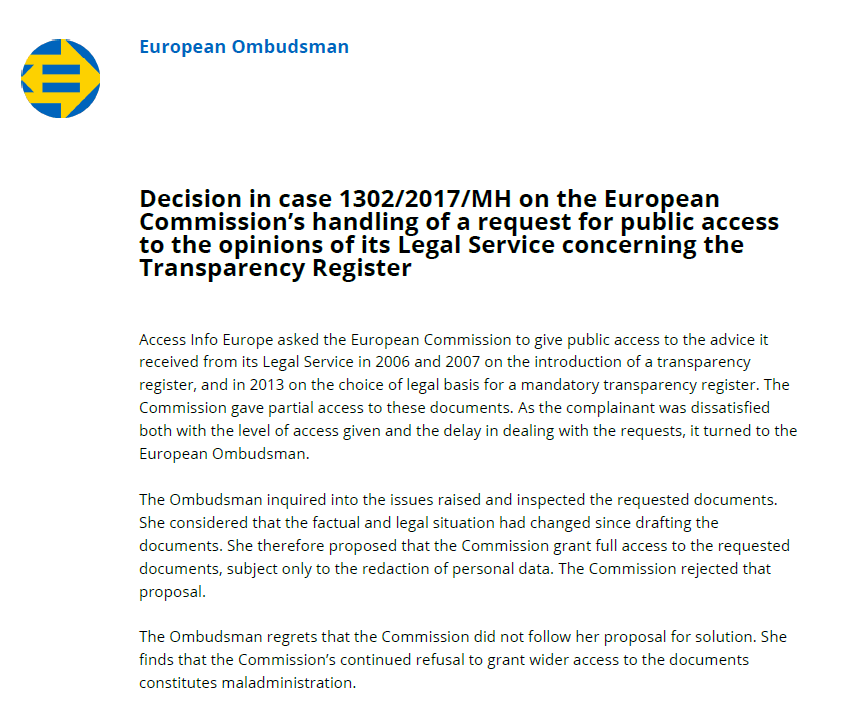Madrid, 14 June 2019 – The European Ombudsman has found the European Commission guilty of maladministration for not releasing to Access Info the Commission’s legal advice on the reform of the European Union’s register of lobbyists, known as the Transparency Register.
Today’s decision by the Ombudsman comes after a three-year tussle over whether or not Access Info should have been provided with the Commission’s analysis about the legal basis for regulating lobbying in Brussels, the world’s second largest lobby capital after Washington.
The initial request for information was made by Access Info in May 2016 at the height of discussions on whether the future lobby register would be voluntary or mandatory. The Commission refused to share the documents, arguing that it needed to protect ongoing decision making and legal advice.
“The refusal prevented Access Info and other civil society organisation from being able to participate fully in the debate on an important topic: how to ensure transparency of corporate influence in Brussels,” said Helen Darbishire, Executive Director of Access Info.
The Ombudsman has now concluded that this refusal was “very formalistic”, that the Commission failed to raise compelling arguments as to why disclosure would undermine legal advice, and concludes that it is “somewhat ironic that the Commission has failed to be as open and forthcoming as possible about the very measure aimed at promoting transparency as a means to achieve greater EU legitimacy.”
The Ombudsman also found that even if the exceptions had applied, there would still be an overriding public interest in disclosure, as the documents would have allow EU citizens to follow evolving discussions this important pro-transparency measure.
Importantly, the Ombudsman argues that the nature of the agreement being discussed, known as an Inter-Institutional Agreement between the Commission, Council and Parliament, is akin to a legislative process, where the EU Treaties and Court of Justice of the European Union jurisprudence require particular openness.
In an additional finding, the Ombudsman notes that the Commission breached procedural requirements because it repeatedly extended the time limit for responding – the final refusal to the 17 May 2016 request came on 5 October 2016 – and failed to provide detailed reasons as to why this was such an exceptional case that the extensions were needed.
“Access Info welcomes this decision, which underlines the importance of transparency for participation in discussions on matters that go to the heart of ensuring accountability of EU decision making,” concluded Darbishire.
Related documents
- Original request of 17 May 2016 and appeal of 18 August 2016 on AsktheEU.org
- Access Info Complaint to the European Ombudsman, 17 July 2017 (Word or PDF)
- European Ombudsman Decision (Website or PDF)
Access Info Europe thanks The Good Lobby for the pro bono legal assistance provided in support of this request and the European Ombudsman complaint.

